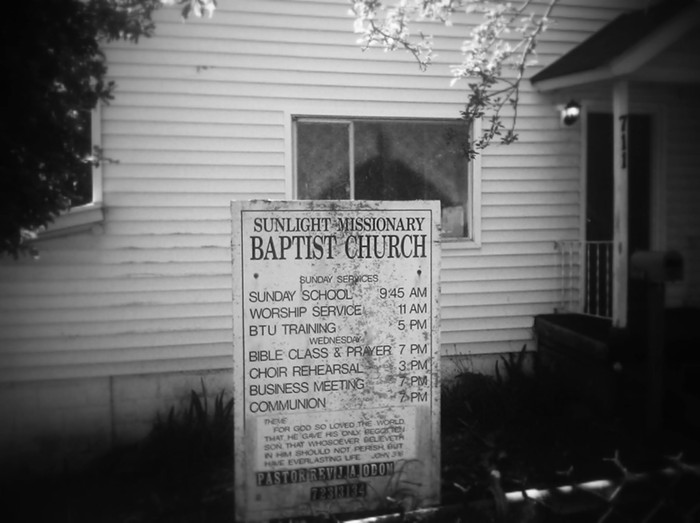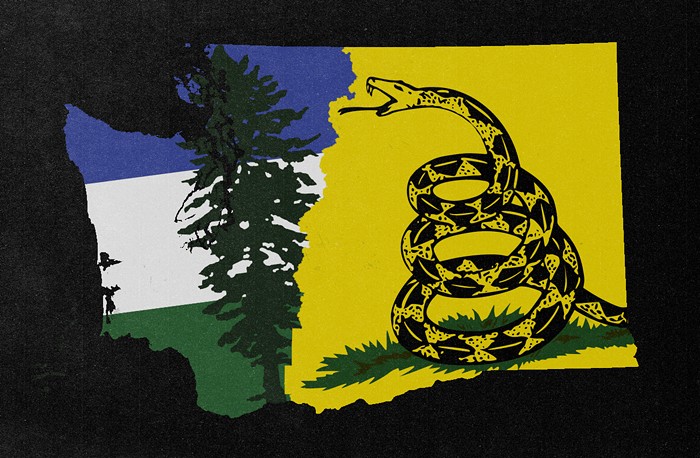
What makes someone a “progressive” or a “liberal," and who gets to define this?
Formal definitions say “Liberalism” uses taxpayer dollars to alleviate a social need. “Progressivism” says we use governmental power and resources to make large systemic changes. “Radicalism” says we go to the root of the problem in the system. We uproot it and rebuild as necessary.
We are skeptical of anyone who takes credit for the “new left” and suspicious of anyone who attempts to make it exclusive. A social movement is not something one can own and being “progressive” is not something one can “have.” A social movement is the shared efforts of many. “Progressive” is not just a political label. It is a mandate for action. These are not badges of honor and they are not static involvements. They are commitments and shared efforts requiring persistent work and struggle. They require accountability to frontline affected communities, especially where the power dynamics of privilege and oppression are at play.
Communities of color and low-income workers are oftentimes the ones most in need of radical shifts in government and policy. For us, the impacts of these changes are the difference between surviving and thriving and sometimes life and death. They are the difference between synthetic representation and a true representative democracy, which must be more than a theory or a goal. Otherwise it will impede, rather than create, the conditions for true transformaton and justice.
“Progressive” is not a t-shirt you get to put on one day. It is years of fighting, being in the streets, on the strike lines, being with and from communities pushing for change, living the experience of systems failing you, and knowing how to make change—not just make noise or be there for the cameras. For those who do not live under the protection of systemic privilege, we do not know what it is to have what we need without a fight. Fighting does not make us “liberal” or “progressive.” The urgency to fight to have our basic human needs and dignity honored is survival. Fighting, and ultimately winning, radical policy changes does not make us “establishment.” It makes us effective.
To say the cornerstone of “progressivism” is “the fight to make gains” is to create a dependence upon the continuation of injustice in order for “progressivism” to continue to exist. Yet folks with power, access and/or privilege, who may consider theirselves “liberal” and maybe even “progressive”, do this all the time. Often while invoking the images of frontline affected communities to raise funds or win elections but turning a blind eye to injustice when it serves or protects their interests. This is a disempowering experience which reifies the wall around justice and raises money and wins elections on the backs of our struggle
Making changes that are radical, long-lasting and meaningful means we must improve the material conditions of the most vulnerable in our city for the better and effectively transform the system to be more just. That’s progress. In part, we do this by electing a more representative government. This means electing those whose lived experiences speak directly to the very failed systems we, progressives, aim to change. This is especially important when the rights and very existence of many in our communities—workers, union members, Native communities, women of color, immigrants, the trans and LGBTQIA communities, religious minorities—are all being threatened. We should be gathering strength from our collective actions and understanding the ways in which our liberation is inextricably bound.
If we are doing this work with a vision for a truly just and equal world, we have to be able to imagine a time beyond this local election, when progress does not always require us to be adversarial. We must envision a movement which pays more than lip service to being intersectional—and instead truly adopts the approach of dismantling racism, gender/sexism and classism—as these “isms” are corrosive affronts to our movements and shared liberation. When the fight ends, we can begin to build a better world. To achieve this, frontline communities must be self-empowered and self-determined to work for ourselves and systems of privilege and oppression must be dismantled and rebuilt for the better.
Progress has to be defined by the work of and the best outcomes for the most affected and most marginalized communities—women of color, trans and queer communities, black and brown communities, disability communities, homeless communities, workers and union members, and frontline/fenceline communities exposed to environmental degradation.
Let’s stop doing the right-wing’s job for them. Let’s stop drawing arbitrary lines of what it means to be “left enough.” Rather, let’s center our policies and politics in the leadership and lived experiences of the most vulnerable and most marginalized in our city. Then we will live up to a real Seattle definition of what it means to be progressive. And better yet, maybe one day we can get to the root of injustice and do something truly radical.
Aretha Basu is a community organizer and campaign manager for Teresa Mosqueda and former campaign coordinator for Nikkita Oliver for Mayor.
Teresa Mosqueda is the Political and Strategic Campaign Director at Washington State Labor Council, AFL-CIO and 2017 Candidate for Seattle City Council Position 8.
Nikkita Oliver is a community organizer, writer, educator, attorney, and former 2017 mayoral candidate.














